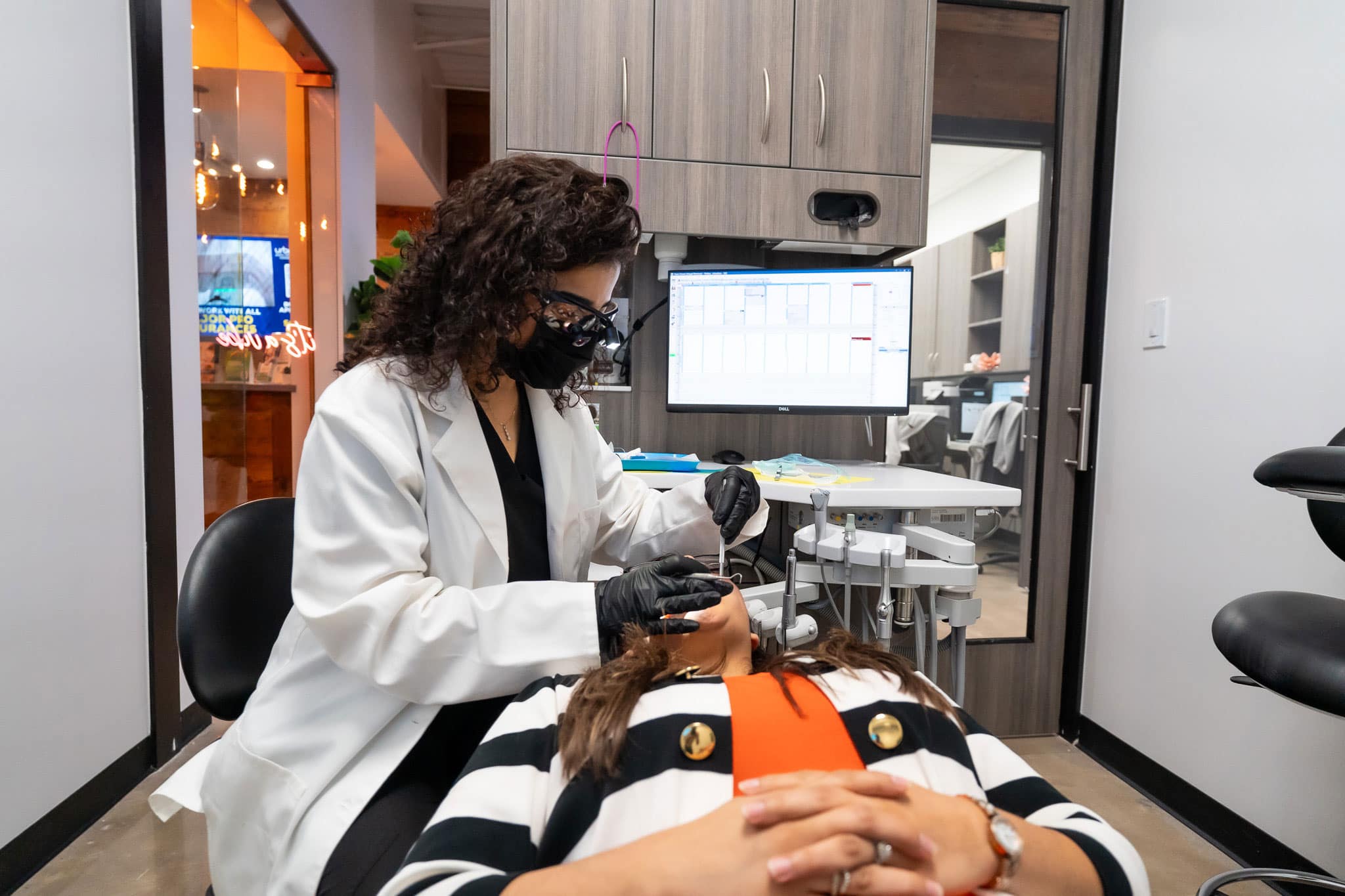Unexpected dental problems often make people search for emergency dental extraction near me and thus find a reliable provider to evaluate the case immediately. When a competent emergency extraction dentist near me is available, it is guaranteed that the oral stability mainly through the long-term will be the primary concern of treatment and guidance.
The instant removal of a wisdom tooth is sometimes necessary to keep the dental health balanced. The patients when faced with such situations often inquire about emergency wisdom tooth extraction near me for a quick response. If you are in Texas, a skilled emergency extraction dentist Houston can take care of such cases with skill and compassion.

A dentist for emergency extraction is selected taking into consideration the precision and visibility of the procedure. The citizens of Houston prefer dental clinics that offer reliable dental emergency Houston services, which provide systematic evaluations and help with their treatment options.
Convenient Access to Emergency Teeth Removal
A lot of people consider providers that are doing emergency teeth pulling near me for the quick evaluation and extraction to be needed. The clinics that are prepared for emergency teeth extractions make the whole process more efficient, so that the patients can confidently go on with their treatment. The patients' safety during the procedure, clear communication, and flexible appointment scheduling are the main focuses of the facilities.

Finding an Emergency Dentist When You Need One
Having a dental emergency? Then, looking for an "emergency dentist near me open today" might just bring you to a clinic that takes in new patients for that day. People, who live in Texas, could be more likely to contact an emergency dentist in Houston to eliminate the doubt about the treatment and, therefore, trust the services that are directed to their urgent needs.
Prioritizing the Right Clinic for Emergency Care
An excellent dental team is one that considers the entire separation of the tooth as being accompanied by a great deal of discomfort and so, they will be providing you with a smooth and comforting experience at every stage of the process. Choosing the right provider means maintaining your dental health at the highest level of professionalism and service where you have comprehensive evaluations and follow-up guidance.
Usually, the very first thing that people do when encountering problems with their teeth that need immediate care is to search for dental abscess emergency near me. Professional help is a huge factor in guiding the right way and through the proper care of the situation.
Trusted Approaches for Abscess Management
Evaluation is the starting point for a proper diagnosis concerning the question of intrusion or extraction; hence, many patients are looking for dental emergency tooth abscess treatment. In fact, if you live in Texas, good quality emergency dental abscess treatment Houston is the best option for you.

Locating Emergency Dentists When You Need Them
The fact that there is an emergency dentist nearby means a lot in terms of relaxation and comfort as well as during a sudden incident. Still, so many people turn to emergency dental places near me to get their clinics which are always able to perform the required services rapidly and effectively even during critical moments.
Accessible Clinics Open Beyond Regular Hours
There are times when the demand for urgent care goes beyond the usual providers; in that case, searching for emergency dental open now will indicate the providers that are open at that instant. Also, the weekend availability is valuable and some patients are even looking for an emergency dentist open on Saturday just to fit in with their busy lifestyle.

Emergency Extractions and Weekend Support
In certain cases, extraction might be the best option, which is why people start searching for emergency tooth extractions near me to get professional advice. For those who desire weekend availability, it's easy to find an emergency dentist open on Sunday near me, which guarantees that there will be no problem with the care when the schedule is a bit tight.
Emergency Dental Care for Houston Residents
Emergency dental care Houston clinics offer a structured assessment, provide support for abscesses, and perform extractions, all by putting the patient first. The clinics make it clear that they will be patient, and provide comfort and reliable services for anybody dealing with an urgent dental case.
In some cases, the emergency tooth extractions are recommended for preserving stable and healthy gums in the future. Tooth removal serves as a way to save adjacent teeth and keep the whole mouth in harmony. Early diagnosis made by a skilled practitioner gives the patient the assurance to go on with the treatment.
Evaluating the Right Treatment for Abscess Tooth
If there is an infection, the dentist will probably suggest tooth abscess treatment depending on the condition of the tooth. A professional diagnosis will guarantee that the correct treatment plan is prepared. Patients, when they need to, just type in ''tooth extraction near me'' on Google to locate a dentist who is reliable and can deal with the problem effectively.

Convenient Same-Day Extraction Options
A lot of dental clinics are offering same day emergency tooth extraction near me as a service to patients with urgent cases that need immediate care. Those who are looking for same day tooth extraction near me can often get their appointment very fast which makes it possible for them to have their worries dealt with without any hold-up. Such practices are designed in a way that the patient's safety, transparency, and smoothness of the treatment are the main concerns.
Locating Emergency Dental Care When You Need It
In the case of unexpected dental problems, patients frequently look for an emergency dental near me open now to find clinics ready to give the medical attention they need immediately. Such places might also provide some more services like the emergency filling solutions for restorative purposes. An emergency dentist online may sometimes be able to give guidance even before the in-person appointment is set for the initial consultation.

Walk-In Options and Reliable Dental Offices
Patients preferring flexibility are often the ones selecting providers with emergency dentist walk in access without previous appointment. This system supports everyday work of dentists and guarantees fast responsive service. There are already numerous fully equipped emergency dental offices that are properly set up to handle all different kinds of dental emergencies providing standard procedures and reliable service quality.
Choosing a Trustworthy Emergency Dental Provider
Selecting a clinic staffed with skilled professionals means that your treatment will be done with care and accuracy. right from the in-depth assessment to the follow-up recommendations, the suitable team is dedicated to making every patient’s treatment pathway easy and supportive.





